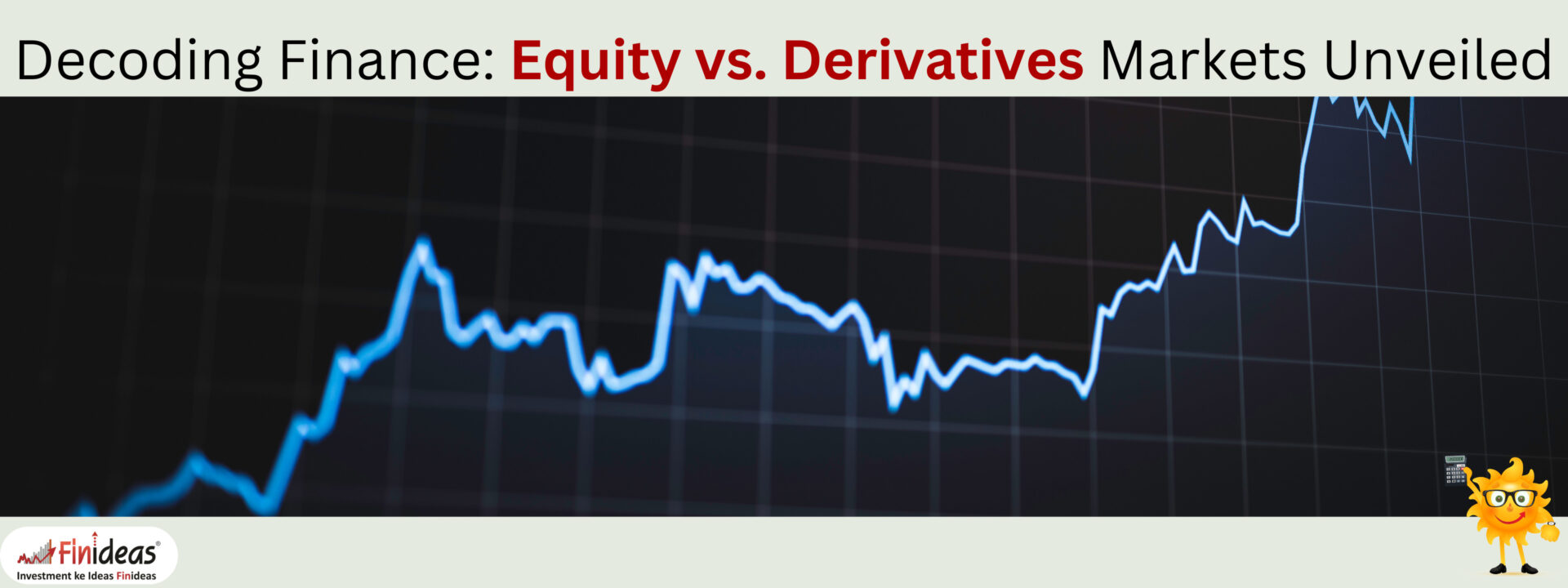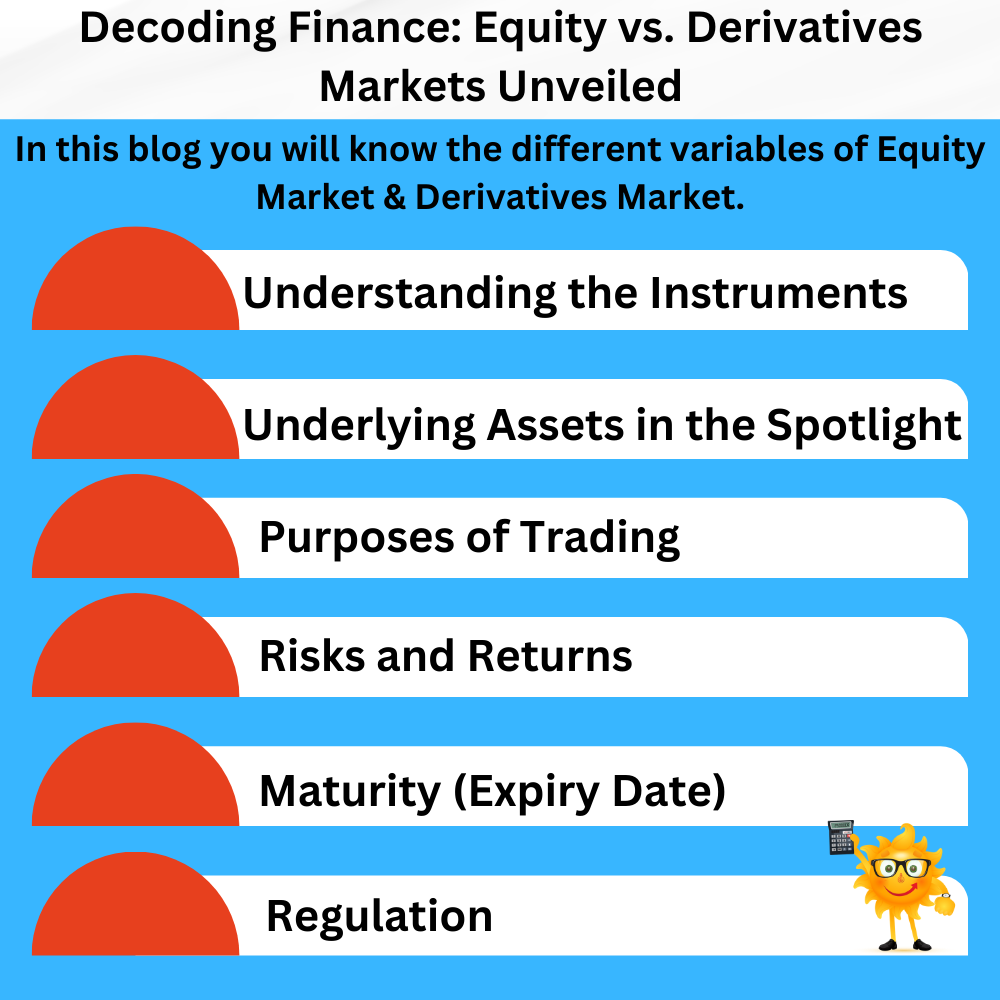Decoding Finance: Equity vs. Derivatives Markets Unveiled
Introduction:
The financial markets are a complex ecosystem, and within it, the equity market and derivatives market stand out as distinct realms with unique characteristics. Understanding the disparities between these markets is essential for investors and financial enthusiasts alike. In this article, we will delve into the key aspects that differentiate the equity market and derivatives market, exploring the nature of instruments traded, the underlying assets involved, the purposes of trading, risks and returns.
Understanding the Instruments:
Equity Market:
The equity market primarily deals with the buying and selling of stocks, which represent ownership in publicly traded companies. Investors acquire shares in the hope of capital appreciation and dividends. Unlike some complex financial instruments, stocks signify a direct claim on a portion of the company’s assets and earnings.
Derivatives Market:
On the flip side, the Derivatives Market deals with financial contracts – options and futures, to be precise. Unlike stocks, these contracts don’t grant ownership. Instead, they derive their value from an underlying asset, opening the door to a world of possibilities. It’s like having a ticket to the future price movements of various assets without owning them.
Underlying Assets in the Spotlight:
Equity Market:
Here, the spotlight shines on company stocks. The value of these stocks mirrors the performance, financial health, and growth prospects of the underlying companies. It’s a straightforward connection between your investment and the company’s success.
Derivatives Market:
In the Derivatives Market, the script is more versatile. Derivatives can be linked to a wide array of underlying assets, allowing investors to speculate on the future price movements of commodities, interest rates, currencies, or market indices. It’s like having a toolkit for diverse financial maneuvers.
Purposes of Trading:
Equity Market:
Investors in the Equity Market are often playing the long game. They become shareholders with the aim of participating in the success and growth of the companies they invest in. It’s a patient strategy with an eye on the future.
Derivatives Market:
Derivatives are the chameleons of the financial world. They serve multiple purposes – from hedging against price fluctuations to speculating on future market movements and managing risks. The Derivatives Market caters to a spectrum of strategies based on investors’ views on market direction.
Risks and Returns:
Equity Market:
Equity investments come with their own set of risks tied to market fluctuations. However, they offer the potential for capital appreciation and dividends over the long term. Returns are directly linked to the performance of the underlying companies.
Derivatives Market:
Derivatives add a layer of complexity and higher risk. While they promise significant returns, the flip side is the risk of substantial losses. It’s a high-stakes game that demands careful risk management in derivative trading.
Maturity (Expiry Date):
Equity Market:
In the Equity Market, individual stocks or shares don’t come with a fixed expiry date. Once you own a piece of a company, you can hold onto it as long as the company remains listed and you maintain ownership.
Derivatives Market:
Derivatives, such as options and futures contracts, often come with specific expiration dates. These dates introduce a time sensitivity factor, influencing strategic decision-making for market participants. It’s like having a deadline for financial decisions.
Regulation:
Equity Markets:
Equity Markets operate under regulations that ensure transparency, fair trading practices, and the protection of investor interests. It’s like having referees on the field to keep the game fair.
Derivatives Markets:
Derivatives Markets also abide by regulations, but the complexity of some products may require additional oversight. This is to prevent market manipulation and ensure stability in a realm where complexity can be both intriguing and challenging.
You can also checkout the Index Long Term Strategy if you are planning for Long Term Strategy.
Conclusion
As we wrap up this journey through the Equity and Derivatives Markets, remember that each has its unique charm and role in the financial seascape. Whether you’re drawn to the stability of stocks or enticed by the versatility of derivatives, understanding these markets equips you to sail confidently in the vast ocean of finance. Here’s to another year of financial exploration and savvy decision-making! Smooth sailing, financial adventurers!
Happy Investing!
This article is for education purpose only. Kindly consult with your financial advisor before doing any kind of investment.


